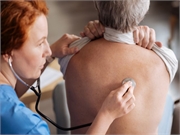
Busy moms and dads routinely stuff their purses and bags with every item their family might need for the day. But that creates a minefield of choking and poisoning hazards for babies and toddlers, pediatricians warn. A purse, backpack or diaper bag can contain a hodgepodge of medications and supplements, cosmetics, hand sanitizers, candy, coins… read on >






























